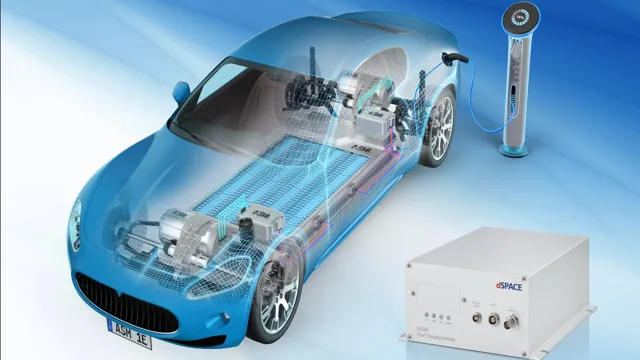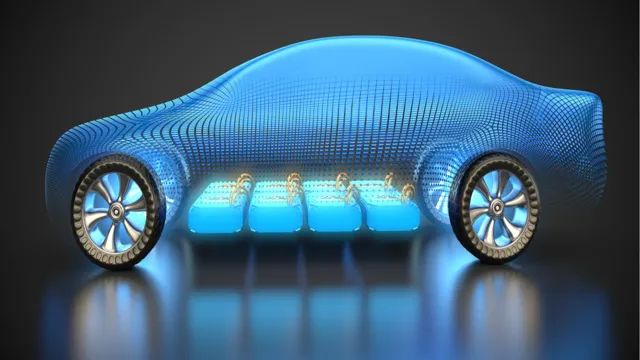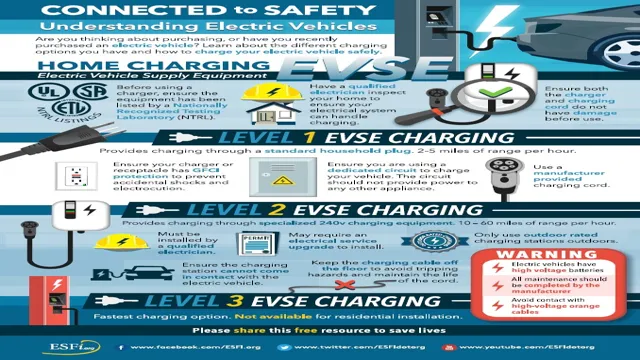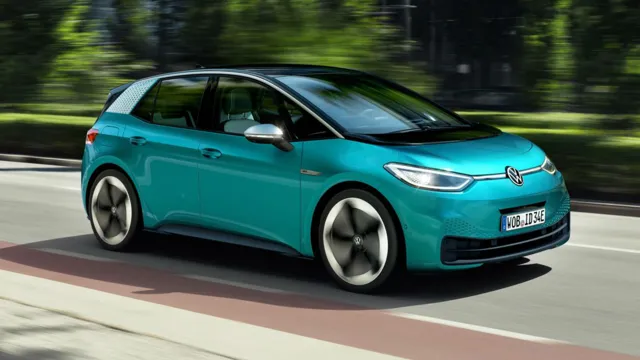Revolutionary Electric Car Charging Technology: The Future of Sustainable Transportation
Electric cars have been all the rage in the past few years, and for good reason. Not only are they eco-friendly and cost-efficient, but they also have the potential to change the way we think about transportation. One of the key components of the future of electric cars is electric car charging.
With advancements in technology and infrastructure, charging an electric car is becoming easier and more convenient than ever before. The future of transportation is electric, and it all begins with electric car charging. Are you ready to embrace this exciting new shift in the automotive industry?
How Electric Car Charging Works
Electric car charging technology has been rapidly evolving over the past few years, and it has become increasingly important as more people switch to electric vehicles. Generally speaking, the process of charging an electric car involves plugging it into a dedicated charging station or using a portable charging cable to connect it to a standard electrical outlet. The amount of time it takes to charge will depend on the battery size and the power of the charging station or outlet being used.
Some electric car models can be charged up to 80% in just half an hour, which is incredibly convenient for drivers on the go. Charging an electric car involves less maintenance and expense than traditional gas-powered vehicles, making them a desirable choice for many environmentally-conscious consumers. As this technology continues to advance, we can expect to see even faster and more efficient charging times for electric vehicles in the near future.
Plug-in and Wireless Charging
Electric car charging can be achieved through two main methods: plug-in and wireless charging. Plug-in charging involves physically connecting the car to a charging station via a cable, while wireless charging uses electromagnetic fields to transfer energy to the car’s battery. When you plug in your electric car to charge, the charging station provides a steady flow of electricity that is converted into stored energy in the car’s battery.
Typically, the higher the amperage of the charging station, the faster the battery will charge. The time it takes to charge the battery will depend on the size of the battery, its current charge, and the power output of the charging station. Wireless charging works by using an induction pad connected to an electrical source.
The car is parked above the pad, and the electromagnetic fields produced between the pad and the car create an electrical current that charges the car’s battery. However, this process can be slower than plug-in charging and requires a compatible wireless charging system. Regardless of the method used, it’s important to keep in mind that electric car batteries don’t work in the same way as traditional gasoline engines.
They can be charged to varying degrees depending on the amount of time and power available. Therefore, it’s important to consider your daily commuting needs and to plan your charging strategy accordingly.
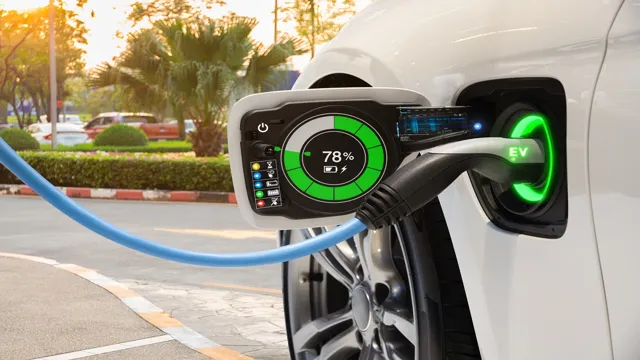
Charging Times and Levels
Electric car charging is a topic that’s on everyone’s mind these days, as more and more people choose to switch to this eco-friendly option. When it comes to charging times and levels, there are a few essential things to know. Electric cars can be charged at different levels, depending on the charger’s voltage and amperage.
Level 1 charging occurs when you plug your electric vehicle directly into a standard 120-volt outlet. This method is rather slow, and it can take up to 20 hours to charge a dead battery fully. Level 2 charging requires a 240-volt outlet and involves installing a charging station in your home or workplace.
This method is faster and usually takes around 4-8 hours to charge an electric vehicle fully. Finally, Level 3 or DC fast-charging is the quickest way to charge your car, taking typically around 30 minutes or less to charge your car fully. Many electric cars come with a built-in charging system that handles all the charging, so drivers don’t have to worry about choosing the right level of charging.
Benefits of Electric Car Charging Technology
Electric car charging technology has many benefits that make it a desirable choice for both individual drivers and the environment. The most obvious advantage of electric car charging technology is that it reduces emissions and pollution, as electric cars produce zero emissions. This makes them a preferred choice for environmentally conscious drivers who want to minimize their carbon footprint.
Another advantage of electric car charging technology is that it is cost-effective and reduces the cost of transportation. Compared to traditional gasoline-powered vehicles, electric cars are cheaper to maintain and run because they require less maintenance and don’t need to be refueled as often. Additionally, electric car charging technology is convenient and efficient, with the ability to charge a car quickly at a public charging station or even at home.
This means that drivers no longer have to worry about running out of gas or finding a convenient gas station, as they can charge their electric cars wherever it is convenient for them. Overall, electric car charging technology offers numerous benefits to drivers and the environment, making it an attractive choice for anyone looking to save money and reduce their carbon footprint.
Eco-Friendly and Cost-Efficient
Electric car charging technology is quickly becoming the go-to solution for eco-conscious individuals who want to reduce their carbon footprint and save money on fuel costs. Electric vehicles typically have lower operating costs than gas-powered vehicles, making them an attractive option for those looking to save money over the long term. Electric car charging technology also offers many benefits to the environment, such as reduced emissions and decreased reliance on fossil fuels.
In addition, many electric car charging stations are available to the public, making it easier than ever to take advantage of this eco-friendly and cost-efficient technology. With the rise of electric vehicles, it’s clear that electric car charging technology is here to stay and will continue to grow in popularity as more people realize its many benefits. So why not make the switch to electric today and start reaping the rewards of this innovative technology?
Convenience and Accessibility
Electric car charging technology has revolutionized the way we think about personal transportation. One of the biggest benefits of this technology is the convenience and accessibility it provides. With traditional gasoline-powered cars, you have to make a special trip to the gas station and spend time refueling your car.
But with electric cars, charging can be done from the comfort of your own home or office. Additionally, there are numerous charging stations popping up all over the country, making it easy to top off your battery while running errands or on a road trip. Plus, many charging stations offer fast-charging capabilities, allowing you to get back on the road quickly.
Overall, electric car charging technology makes owning and driving an electric vehicle easier and more convenient than ever.
Less Maintenance and Longer Lifespan
One of the biggest benefits of electric car charging technology is its less maintenance and longer lifespan. Unlike traditional gasoline cars, electric cars have fewer moving parts, which means they require less maintenance. With no oil changes, fewer brake pad replacements and no engine maintenance, electric cars are easier and cheaper to maintain.
Additionally, electric cars have a longer lifespan because they don’t experience the same wear and tear as traditional vehicles. Electric cars have fewer mechanical parts that can break down, which leads to less downtime and fewer repairs. It’s like comparing a bicycle to a car.
A bicycle has simple mechanics and requires little maintenance, while a car has complex mechanics and requires more upkeep. The difference is the same between an electric car and a traditional gasoline car.
The Current State of Electric Car Charging Infrastructure
Electric car charging technology has come a long way and is rapidly improving. The current state of electric car charging infrastructure is both exciting and encouraging. Modern electric cars typically have ranges of over 200 miles, and they require charging after about 80% depletion.
To cater to this demand, a growing number of charging stations are popping up around the world. Furthermore, advances in electric car charging technology mean that charging times are increasingly becoming faster, making electric cars more practical. We can now achieve charging times as quick as 30 minutes to reach an 80% charge, which is comparable to filling up a tank with gasoline.
As electric car adoption continues to increase, we can expect further investment in infrastructure to help meet demand and ensure a smooth and fast charging experience for drivers.
Global Trends and Market Growth
The current state of electric car charging infrastructure is a vital concern for those who want to take advantage of the many benefits of electric vehicles. With the growing popularity of these cars, there is a pressing need for sufficient charging stations. Although progress has been made to develop more of them, there are still many challenges to overcome.
Some areas lack the necessary infrastructure while others have too few charging points. There are also different types of charging stations with varying degrees of power, making it difficult for drivers to know which one they need. Despite these challenges, the electric car industry is growing rapidly, and the demand for charging infrastructure is increasing.
Governments and private entities are investing heavily in this area, and we can expect significant improvements in the years to come. As more people switch to electric cars, and more charging stations are installed, we will experience a significant positive impact on the environment, public health, and the economy.
Government Policies and Initiatives
The current state of electric car charging infrastructure has been a topic of discussion in recent years, especially as the world moves towards a more sustainable future. The good news is that the government has been actively promoting and implementing policies and initiatives that aim to improve the infrastructure for electric vehicle (EV) charging. One such initiative is the Zero Emission Vehicles (ZEV) program, which aims to make more EV charging stations available to the public by requiring automakers to produce more zero-emission vehicles.
Many states are also offering incentives for EV drivers, such as tax credits and free charging stations. However, despite these efforts, the infrastructure is still lacking in many areas, particularly in rural regions. But with the government’s continued focus on sustainability, we can expect to see significant improvements in the electric car charging infrastructure in the coming years.
The Future of Electric Car Charging Technology
Electric car charging technology is constantly evolving, and this has led to considerable changes in the industry. One of the most significant developments in electric car charging technology is the increasing use of wireless charging. This technology utilizes an electromagnetic field to transfer energy from the charging station to the electric vehicle.
The benefits of wireless charging include the convenience of not having to manually plug in and unplug your vehicle and the reduction in wear and tear on cables and connectors. Additionally, wireless charging provides a safer and more convenient charging solution for those who do not have access to a garage or private parking. As electric vehicles gain in popularity, it is likely that we will see continued advancements in charging technology, including improvements in battery capacity, faster charging times, and more accessible charging infrastructure.
It is an exciting time for electric car owners as they get to witness the evolution of electric car charging technology firsthand.
Innovation and Advancements
Electric car charging technology is rapidly evolving to meet the demands of this growing industry. Advancements in battery technology along with innovative charging solutions are making it possible for drivers to experience the convenience and efficiency of electric cars. One of the most significant developments in this area is the introduction of wireless charging technology.
This technology allows electric cars to be charged simply by parking them over a charging pad, without having to plug in a cable. This method of charging is not only more convenient for drivers but is also less complicated and safer. Additionally, advancements in fast charging technology are allowing electric cars to charge in a matter of minutes, making long-distance travel much more feasible.
As electric car technology continues to improve, the future is looking bright for the industry, and we can expect to see more innovative and efficient charging solutions in the years to come.
Smart and Sustainable Charging Solutions
Smart and sustainable charging solutions are the future of electric car charging technology. As the world increasingly moves towards electric vehicles, it is essential to develop efficient and reliable charging infrastructure to support the growing demand. Smart charging solutions use advanced technology to communicate with both electric vehicles and the power grid.
This two-way communication helps balance the supply and demand of energy, reducing the overall load on the grid during peak hours. Additionally, sustainable charging solutions, such as solar-powered charging stations, provide a green energy source for electric vehicles, reducing their carbon footprint. With smart and sustainable charging solutions, electric vehicles can become a more accessible and eco-friendly mode of transportation.
As the world continues to shift towards renewable energy sources, the adoption of efficient and sustainable electric vehicle charging infrastructure is crucial for a greener future.
Integration with Renewable Energy Sources
Electric car charging technology is quickly advancing to keep up with the increasing demand for renewable energy sources. With the world’s shift towards clean and sustainable energy, electric cars are becoming more and more popular. As a result, there is a need for electric car charging stations that are not just efficient and fast but also eco-friendly.
Integrating electric car charging systems with renewable energy sources such as solar, wind and hydro power is the future of electric car charging technology. This integration not only reduces dependency on non-renewable sources but can also help bring down the cost of charging. Making use of renewable energy sources not only helps the environment but can also provide a new source of income for parking structures and businesses.
In the near future, electric car charging systems will be well-equipped to store energy and distribute it when necessary, making it easier and more convenient for electric car owners. In summary, the integration of renewable energy sources into electric car charging systems not only helps to reduce carbon emissions but also makes the entire process more sustainable, cost-effective, and convenient in the long run.
Conclusion
In conclusion, electric car charging technology is revolutionizing the way we think about transportation. Just like how we’ve moved from the horse and carriage to the automobile, we’re now moving towards a future of sustainable and eco-friendly modes of transportation. Electric cars are changing the game, and with the advancements in charging technology, we’re now able to take longer journeys without worrying about running out of power.
So if you’re ready to jump on the electric bandwagon, don’t forget to charge your ride before you hit the road. After all, a charged car is a happy car!”
FAQs
What is electric car charging technology?
Electric car charging technology refers to the various methods and systems used to charge the batteries in electric cars.
How long does it take to charge an electric car?
The time it takes to charge an electric car depends on several factors, including the capacity of the battery and the type of charging system used. Fast charging systems can charge a car in as little as 30 minutes, while slower charging systems can take several hours.
Can electric cars be charged at home?
Yes, electric cars can be charged at home using a dedicated charging station or a standard electrical outlet. However, a dedicated charging station is recommended for faster, more efficient charging.
How does public electric car charging work?
Public electric car charging stations are typically located in parking lots and other public areas. Users can pay to use the station using a credit card or through a mobile app. Charging times and rates vary depending on the provider and location of the station.
